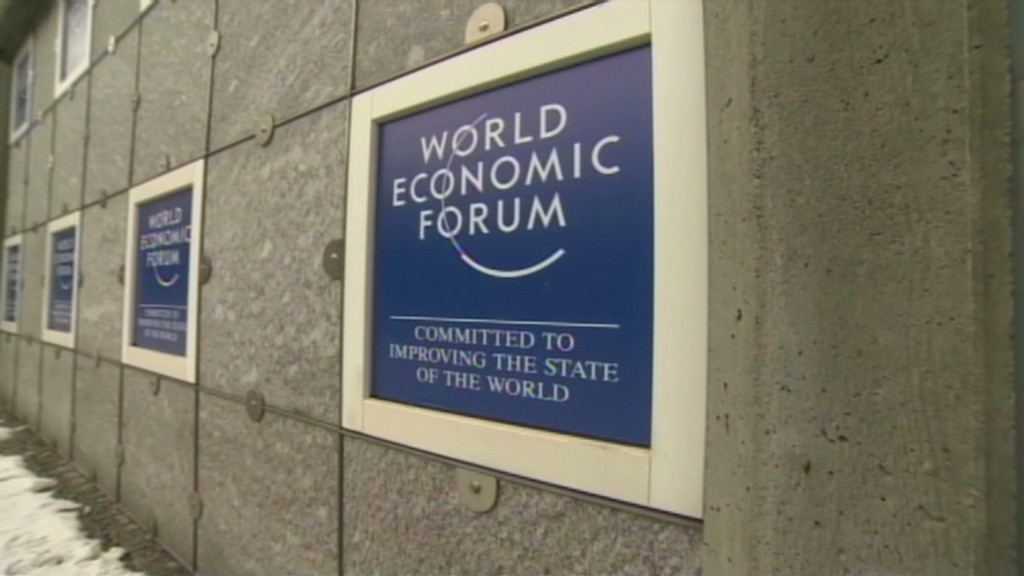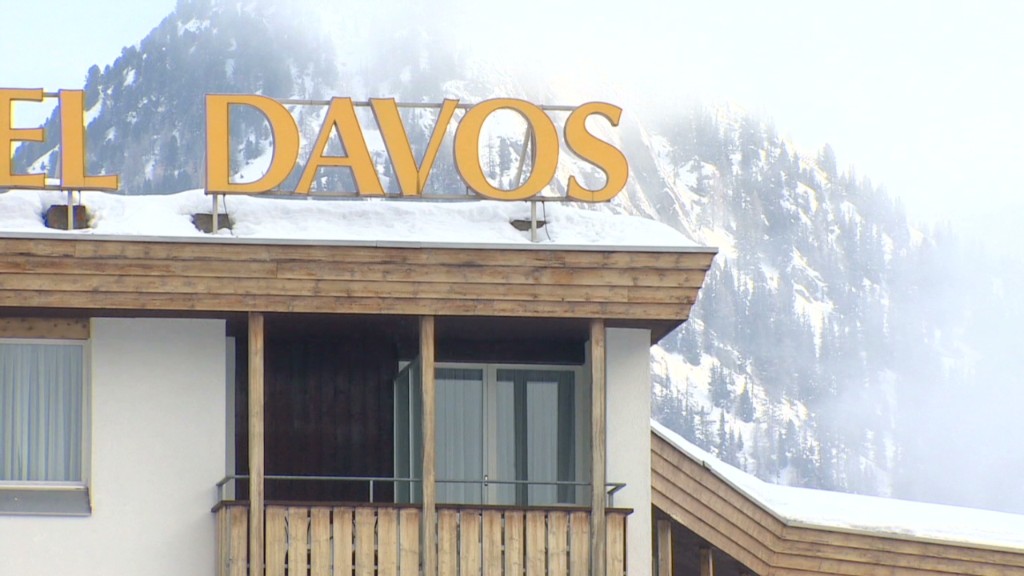
The euro survived. Washington is expected to muddle through its fiscal crises. China is heading for a soft landing, and markets and corporate earnings are recovering.
Nearly five years after the banking meltdown, the world economy is back on track, right?
As policymakers and senior executives fly off for a week of brainstorming and partying in the Swiss mountain resort of Davos, they may be tempted to pat themselves on the back.
Yet many are more pessimistic about the future than they were 12 months ago, according to a survey by the World Economic Forum, host of the annual Davos shindig from January 23 to 27. Clouds over Davos include anemic growth, rising social tensions and increased volatility in emerging markets.
"We face a new reality of sudden shocks and prolonged global economic malaise, particularly in major economies experiencing economic austerity," said WEF founder Klaus Schwab.
For the second year running, over 1,000 industry leaders and experts surveyed by the WEF rated wealth gaps and unsustainable government debt as the most prevalent risks to the world economy.
It will take years for the debt of most major economies to fall. And growth won't recover enough this year to lend a hand or dull the pain -- the World Bank expects the global economy to grow by 2.4%, barely changed from 2012.
Some states are borrowing more, not less. Japan is tapping bond markets to fund part of a stimulus program aimed at ending decades of stagnation, adding to debt that is twice as big as the economy.
Whatever happens in Washington next month, a compromise is likely to see the U.S. debt ceiling raised again. And most Americans will end up paying more taxes.
Related: U.S. economy to dominate Davos 2013
The European Union, crucible of the debt crisis in 2012, is in the middle of an austerity drive that has left 26 million people out of work, almost 19 million in the eurozone. In Spain, every other worker under 25 is out of a job.

While recession has forced governments and lenders to relax debt targets and ease deadlines, there's no hint of a change in the overall austerity push.
"Our patient may be out of intensive care, but it will still take some time before she can be given a clean bill of health," said Olli Rehn, the EU's top economic official, in a recent speech. "That's why any lapse into complacency would be unforgiveable."
Initiatives such as the launch of a bailout fund, the first tentative steps toward a banking union, and the ECB's pledge to buy short-term debt from struggling eurozone members have gone a long way to reassure investors that the euro is not about to disintegrate.
Related: Davos 2013: Economic mood map
But the pace of reform this year could slacken as the backlash against austerity grows, Germany and Italy go to the polls, and market pressure for change subsides.
"In 2013, the risks shift from threat of financial crisis to a loss of momentum in creating the institutional and policy frameworks for a redesigned union," political risk consultancy Eurasia Group wrote in its annual outlook.
Governments may also find reform of labor and product markets to restore European competitiveness hard going.
"That's where action is needed, and will continue to be needed in the future," ECB President Draghi said last week.
Credit rating agency Standard & Poor's says the need for further reform will challenge Europe's leaders, and strain the political consensus if the pain isn't more evenly shared and vulnerable citizens aren't better protected.
"Safeguards to the social contract may be necessary to assist in the cohesion of those member states suffering from high unemployment, excessive private leverage, and stagnating or falling living standards," said S&P analyst Moritz Kraemer.
Related: New year, same old problems?
Emerging markets could provide a bright spot -- their share of global economic growth is forecast to rise to 75% by 2020 -- but as their role grows so will the risk of increased volatility.
China's future, particularly the ability of its new leaders to manage the rising clamor for access to information, is critical, argues Eurasia Group.
"Uncertainty over China's short- to medium-term trajectory is an order of magnitude greater than that of any other major global economy," Eurasia Group said.
If that wasn't enough to upset the most upbeat of optimists, the WEF survey found concerns about rising greenhouse gas emissions and the impact of climate change have increased significantly.
That may not come as a surprise after Hurricane Sandy, fires in Australia and flooding in China. 2012 was the warmest year yet in the United States, and the cost of weather disasters could end up topping 2011's record $60 billion.
Economic and climate stress makes it harder to find solutions to either. Against that backdrop, Davos delegates may be forgiven for grabbing a few moments to simply enjoy the snow.


